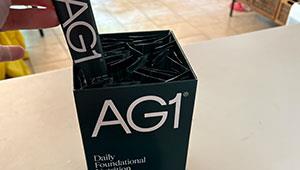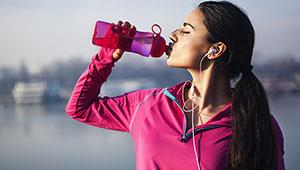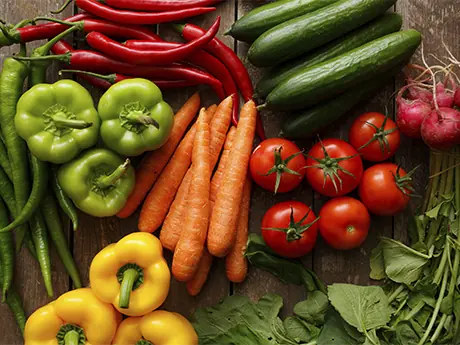? Trained cyclists who consumed equal calories of either a sports drink or banana chunks during a 75-kilometer cycling time trial performed similarly. The banana, however, offered a beneficial anti-inflammatory response. Natural foods generally offer more benefits than engineered sports foods.
? Chocolate milk is a popular recovery food that contains carbohydrates to refuel muscles and high quality protein to build and repair muscles. Both full-fat and skimmed chocolate milk offer similar recovery benefits.
? Beer is a plant-based beverage that offers anti-oxidant and anti-inflammatory properties. Marathoners who drank 1 to 1.5 liters of non-alcoholic beer per day for three weeks prior to a marathon and two weeks after the marathon experienced less post-race inflammation and fewer colds. Non-alcoholic beer offers a wise way to enjoy the natural high of exercise along with positive health benefits.
? Have you ever wondered how much elite endurance athletes consume during an event? A post-event survey of Ironman triathletes, marathoners, long-distance cyclists, and professional bike racers suggests the Ironmen consumed about 70 grams (280 calories) of carbohydrate per hour; the cyclists, 53 grams (212 calories) and the marathoners, 35 grams (140 calories). The endurance athletes who consumed the most energy had the best performances.
? How common are intestinal problems during endurance events? About 31 percent of the Ironman competitors reported GI serious problems, compared to 14 percent of the half-Ironman competitors, 4 percent of the cyclists, and 4 percent of the marathoners. Those with a history of GI distress reported the most symptoms, as well as those who exercised in higher heat.
? If you are going to be competing in the heat, you might want to pre-cool your body. One way to do that is to enjoy an ice slurry. Runners who consumed about 14 oz. of ice slurry before they exercised in the heat were able to run about 1 percent faster during a 10 kilometer (6.2 mile) race.
? Female athletes commonly restrict their food intake. Among 44 female high school cross-country runners (16 year olds):
--39 percent restricted food, thinking being lighter would help them perform better.
--42 percent reported missed or absent menstrual periods in the past year—a sign of being under-fueled.
--They were eight times more likely to believe missing multiple periods was a sign they were in better shape.
These young women need to be educated about the medical problems associated with missed menstrual periods!
? To resume menses, amenorrheic women need to correct the energy deficit. Those who drank a 360-calorie carbohydrate-protein supplement resumed menses, on average, in about 2.5 months (?2 months). The longer they had been amenorrheic, the longer they needed to resume menses.
 Eat right and perform better. Find a nutrition plan for you.
Eat right and perform better. Find a nutrition plan for you.
Nancy Clark, MS RD CSSD (Board Certified Specialist in Sports Dietetics) counsels casual and competitive athletes at her private practice at Healthworks, the premier fitness center in Chestnut Hill, Massachusetts (617-383-6100). Her Sports Nutrition Guidebook, Food Guide for Marathoners, and Cyclist's Food Guide and are available at www.nancyclarkrd.com. Also see www.sportsnutritionworkshop.com for information about her online workshop.
- 2
- of
- 2








Discuss This Article